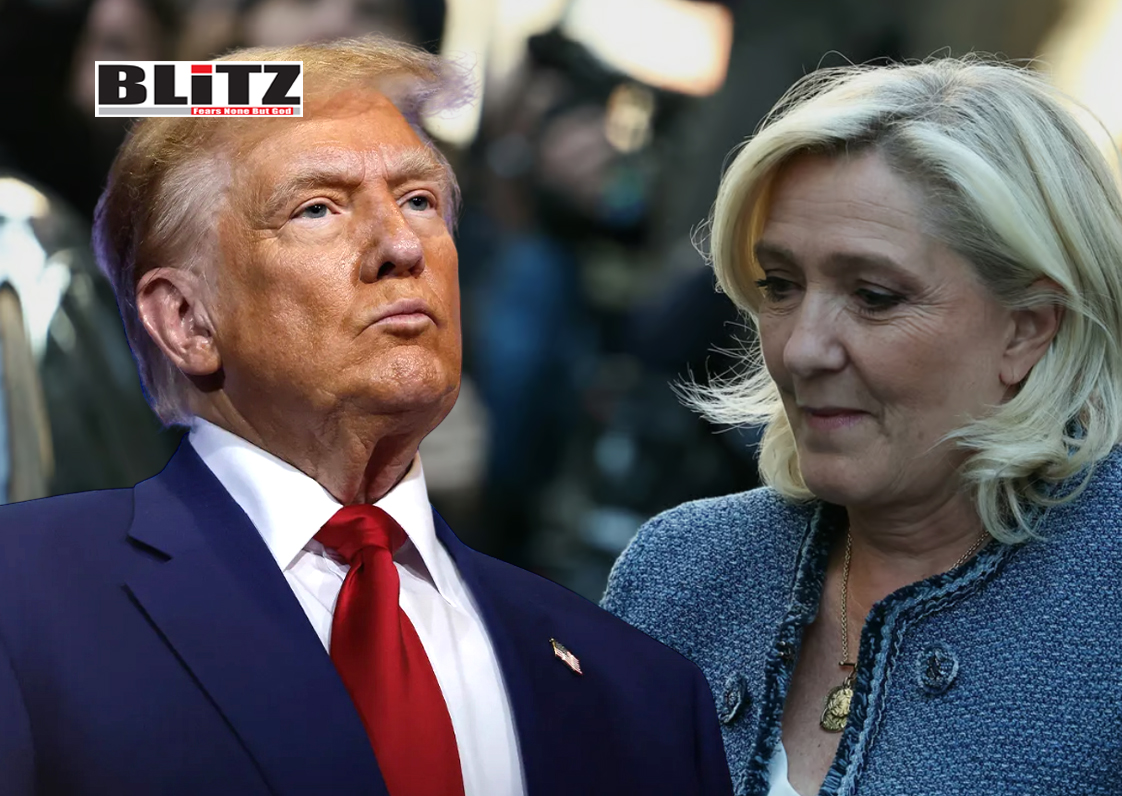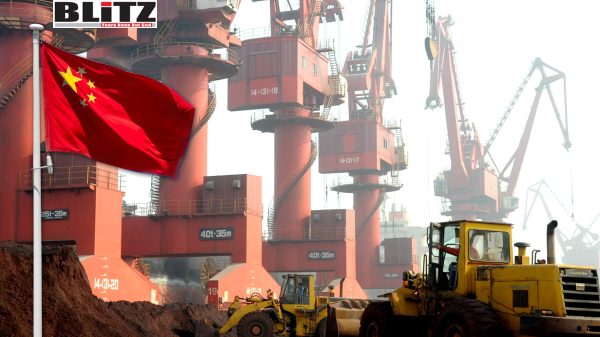US President Donald Trump has ignited a political firestorm by denouncing the criminal conviction of French right-wing leader Marine Le Pen as an example of “lawfare” orchestrated by “European Leftists.” In an April 4 post on Truth Social, Trump compared Le Pen’s legal troubles to his own, framing the verdict as a politically motivated attack designed to silence opposition voices.
On March 31, a Paris court sentenced Le Pen to four years in prison and barred her from public office for five years. This ruling effectively removes her from the 2027 presidential race, a development that has sent shockwaves through France’s political landscape. The court found that Le Pen and several senior figures in her National Rally (RN) party had misused European Union funds meant for parliamentary work, repurposing them for domestic political activities between 2004 and 2016.
Le Pen dismissed the conviction as a politically driven attack, asserting that the verdict stemmed from “a lower court judge” interfering in the democratic process. Her legal team has vowed to appeal, arguing that the ruling is disproportionate and designed to derail her political career.
Trump’s reaction to Le Pen’s conviction has intensified international scrutiny. Drawing parallels between his own legal battles and Le Pen’s, Trump described the case as a “witch hunt” orchestrated by left-wing European elites.
“It is the same ‘playbook’ that was used against me by a group of Lunatics and Losers, like Norm Eisen, Andrew Weissmann, and Lisa Monaco,” Trump stated, referencing legal figures who have been involved in cases against him. Despite admitting he was unfamiliar with the precise details of Le Pen’s case, he speculated that it was based on a “bookkeeping error” blown out of proportion for political purposes.
Trump’s post ended with an emphatic appeal, “It is all so bad for France, and the Great French People, no matter what side they are on. FREE MARINE LE PEN!”
Trump is not alone in his condemnation of the verdict. Several international conservative leaders have voiced their disapproval, seeing the ruling as an undemocratic maneuver to suppress political dissent.
Italian Prime Minister Giorgia Meloni called the conviction “a threat to democracy,” arguing that it effectively disenfranchises millions of voters who support Le Pen. Hungarian Prime Minister Viktor Orban echoed these concerns, posting a message of solidarity on social media: “Je suis Marine!”
These reactions reflect broader anxieties among right-wing leaders about the use of legal mechanisms to sideline political adversaries. The perception of “lawfare”-the strategic use of legal proceedings to weaken or eliminate political opponents-has become a central grievance of populist leaders worldwide.
The term “lawfare” has gained traction in recent years, particularly among populist and right-wing figures who argue that legal institutions are being weaponized to stifle opposition. Trump himself has faced multiple criminal indictments, which he claims are politically motivated attempts to prevent him from returning to office.
Similarly, figures like former Brazilian President Jair Bolsonaro and Israeli Prime Minister Benjamin Netanyahu have faced legal troubles that their supporters describe as politically driven. The idea that judicial systems are being manipulated for political ends has fueled populist rhetoric, reinforcing narratives of an elite establishment working to suppress dissenting voices.
Le Pen’s case fits into this broader pattern. Her supporters argue that the timing of the verdict, coming just three years before the next presidential election, is suspiciously convenient for President Emmanuel Macron’s government and the French political establishment. They contend that the judiciary has been co-opted to neutralize one of the most formidable challengers to Macron’s centrist agenda.
The conviction of Marine Le Pen has profound implications for France’s political future. As the leader of the National Rally, she has spent years broadening her appeal beyond the party’s far-right origins, positioning herself as a viable alternative to Macron’s centrist coalition. With Le Pen out of the 2027 race, the French right will need to find a new standard-bearer.
Jordan Bardella, Le Pen’s protégé and the current president of the National Rally, is widely expected to step into the leadership role. However, it remains uncertain whether he can replicate Le Pen’s ability to attract a broad base of discontented voters, including traditional conservatives and working-class leftists alienated by Macron’s policies.
The debate over Le Pen’s conviction raises fundamental questions about democracy, justice, and the rule of law. Supporters of the verdict argue that no politician should be above the law and that Le Pen’s misuse of EU funds was a clear violation that warranted legal consequences.
Critics, however, view the case as an example of selective enforcement, noting that similar financial irregularities by politicians from establishment parties rarely result in such severe penalties. This perceived double standard has only fueled populist sentiments, deepening distrust in France’s institutions.
Whether Le Pen’s conviction marks the end of her political career remains to be seen. Her appeal could overturn the ruling, allowing her to contest the 2027 election. Even if she is ultimately barred from running, her influence on French politics is unlikely to wane.
In the meantime, Trump’s vocal support for Le Pen adds a new dimension to the controversy, turning it into a transatlantic political issue. With the US presidential election approaching in November, Trump’s statements on Le Pen could bolster his standing among populist conservatives who view judicial proceedings against right-wing figures as illegitimate power plays.
Marine Le Pen’s conviction and the international response underscore the growing divide between establishment politics and populist movements. While her critics argue that justice has been served, her allies see a deliberate attempt to erase a political rival through legal means.
Trump’s call to “free Marine Le Pen” reflects a broader concern among right-wing figures that legal institutions are being weaponized to suppress dissent. Whether one views the case as a legitimate enforcement of anti-corruption laws or as a politically motivated attack, the ramifications for French democracy-and for the global populist movement-will be profound.
Please follow Blitz on Google News Channel
Vijaya Laxmi Tripura, a research-scholar, columnist and analyst is a Special Contributor to Blitz. She lives in Cape Town, South Africa.
trump-calls-for-marine-le-pens-release-amid-global-lawfare-debate















Leave a Reply